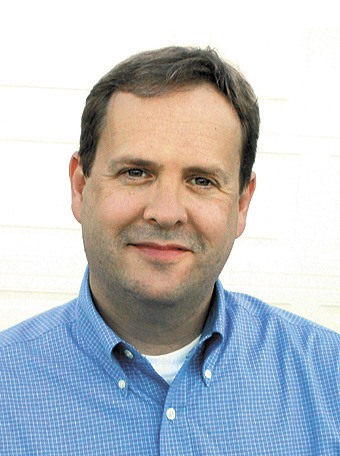Snoqualmie’s City Council has found a funding source for needed road improvements. Now they just need to pay off city hall.
The council voted 5-2 to approve an ordinance repealing the scheduled sunset of a 3 percent utility tax that is now paying for the 2009 construction of city hall.
Council members Bryan Holloway and Charles Peterson voted against the change.
Holloway led the charge, arguing that the council had settled the fate of the utility tax, leaving it up to a future council. Beginning a detailed discussion, he played several minutes of audio from the June 9 council meeting, when the council discussed the future sunset of the tax as well as a resolution on new ways to fund street repairs.
“We really didn’t want to violate the agreement we had on the utility tax that says in 2020, when we pay it off, the council has a decision to either extend or discontinue that tax. We ought to make that decision in 2020,” Holloway argued in June.
“This bill, the decision it’s asking for has already been made,” he told the council Monday. “Nothing has changed. The process is in place. I cannot support it, because I would be violating what we did before.”
“Us agreeing to put that in place today does affect what the council should consider at that time,” commented Peterson.
“We have given that council the appropriate time to make that decision. And now we’re taking it back,” said Holloway.
What the tax does
In March of 2011, Snoqualmie started the 3 percent utility rate tax to pay off the remaining debt for the city hall. This new tax on water, storm, sewer and garbage fees produces about $270,000 per year.
It is due to expire in March of 2020, when city bonds are paid off.
“At this rate, we’ll have more money—enough money to redeem the bonds fully by 2020, except I can’t pay them off early because it violates the bond code,” City Finance Officer Rob Orton told the council.
The city had been seeking a way to pay for infrastructure fixes, primarily on Snoqualmie Ridge, where utilities that have a life of 50 years are buried under streets that have a life of 12 years. “So, we’ll repave them three times before the utilities ever bust,” Orton said. “We lacked a mechanism to pay for streets that simply needed overlay, curb to curb.”
This tax could be that source.
“If preserved, it will be well over half of the overlay resources by 2020,” Orton said.
A similar decision is pending for the city’s transportation benefit district funding. The city council acts as the transportation district’s board. Orton intends to ask them to roll the benefit district’s funding into the overlay fund.
“To me, this does not foreclose a future council changing its mind about this tax,” Orton said. “It just gives a little more security that this issue is behind us, funded, and we can move on.”
“For something that has been a huge issue since the day I walked in here, now we have a solution. I think it would be nice to put it behind us,” he said later.
The other five members of the council backed the plan.
“Bryan has well thought-out points,” said Bob Jeans. “We can decide today or we can decide, really at any time, whether we’re going to do what we said we’re going to at the outset, and sunset it. But we have more information today than we had back then as to what the city’s needs are and what we can do to finance them. I’m inclined to move forward.”
“The ability of council to change its fiscal policy in the future resolves any concern about committing funds today,” commented Kingston Wall. “I don’t mean any disrespect for your arguments. I’m looking at a future council’s privilege as their way of dealing with it if they disagree with us.”
Other business
In other business, the council approved an ordinance updating school impact fees. Based on the latest Snoqualmie Valley School District Capital Facilities Plan, the new rate for a single family house is $8,325, $4,325 for an apartment. The council agreed to waive normal rules and pass it on the introductory reading.
The council also adopted the Snoqualmie Planning Commission’s goals and 2014-15 work plan. They approved an agreement with Clowns Unlimited for a grand opening for the Jeanne Hansen Community Park for September.
Under the consent agenda, the council OK’d preliminary plat approval for parcels S14 and part of S1. That land is the tenth and final residential subdivision within Snoqualmie Ridge II and the 28th subdivision on Snoqualmie Ridge as a whole. The application would turn 24 and a half acres into 97 single-family building lots, parks, open space and roads.
Also on the consent agenda, the council gave special event permits for a birthday at Azalea Park, a wedding at Point Park, a block party on Kinsey Street, a Young Life car wash at the police department, a concert at Community Park, and the Railroad Days Fun Run August 16. The council also approved a quit-claim deed on Northern Street, OK’d new financial software, and amended an agreement with the county for open space acquisition projects.



